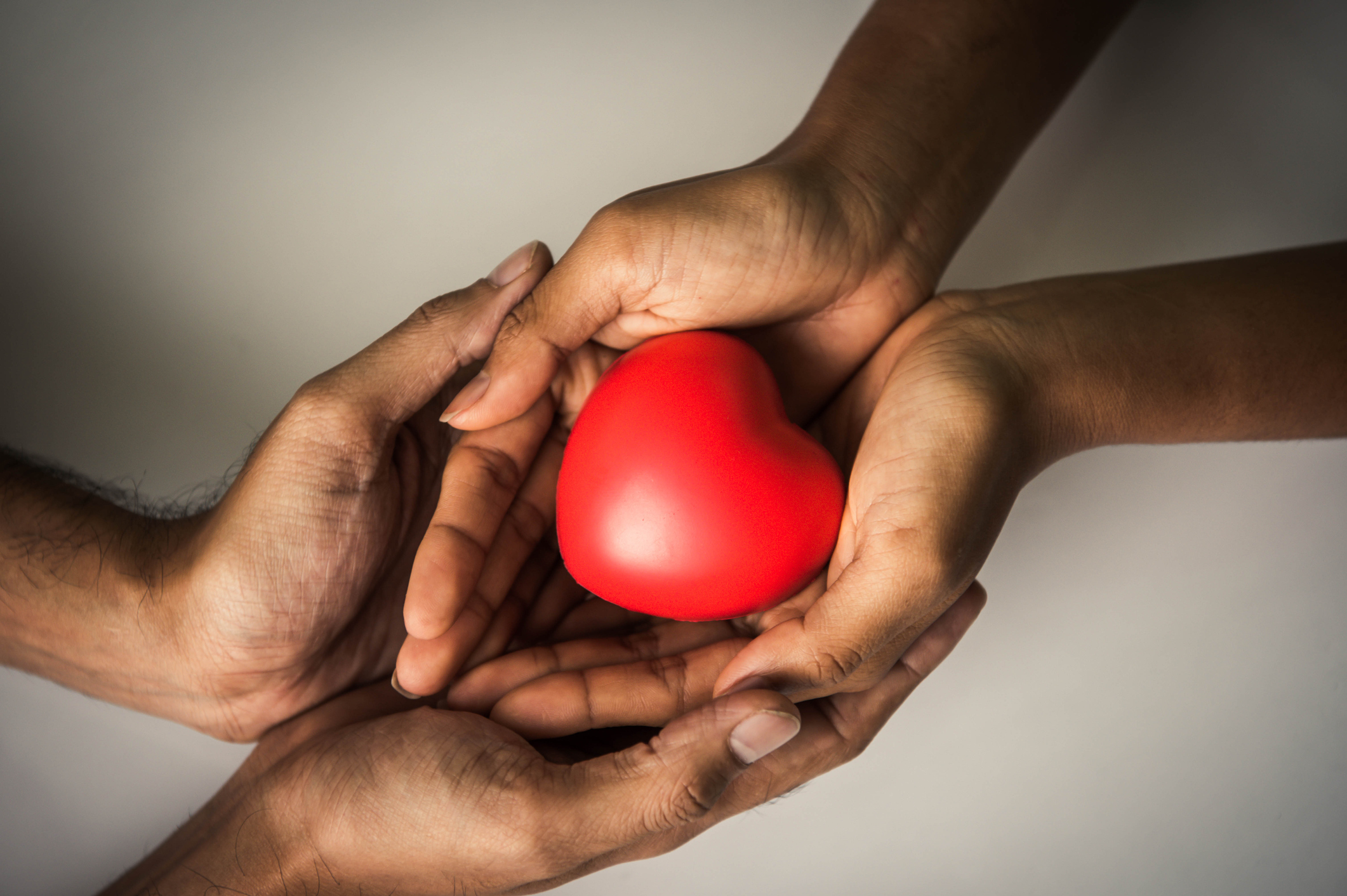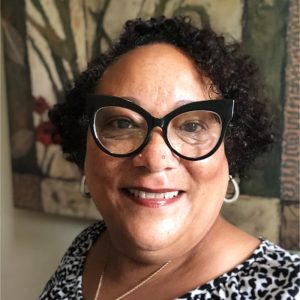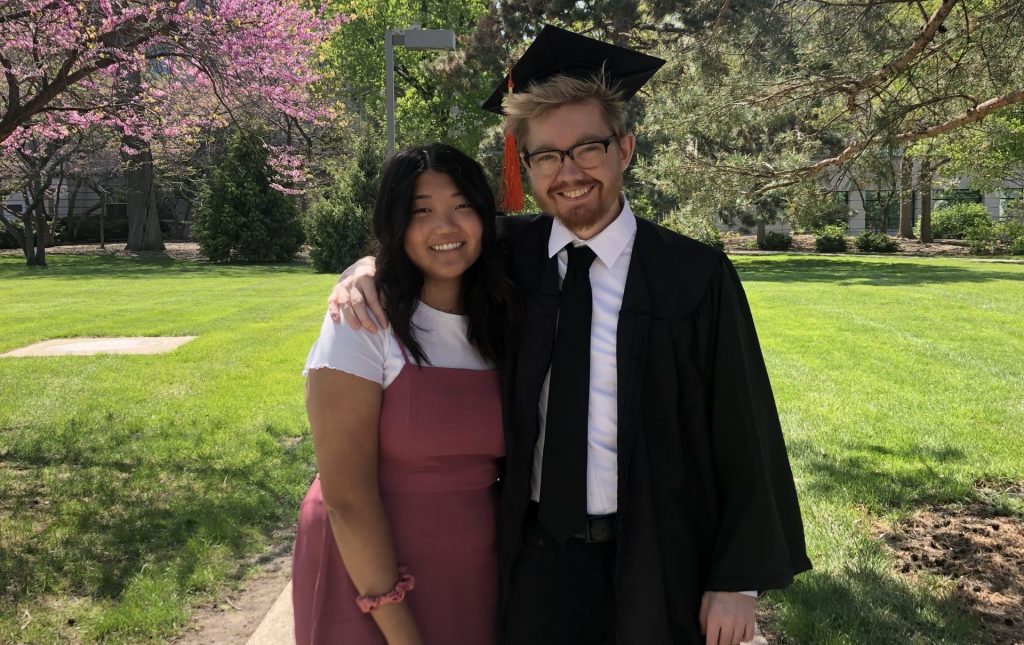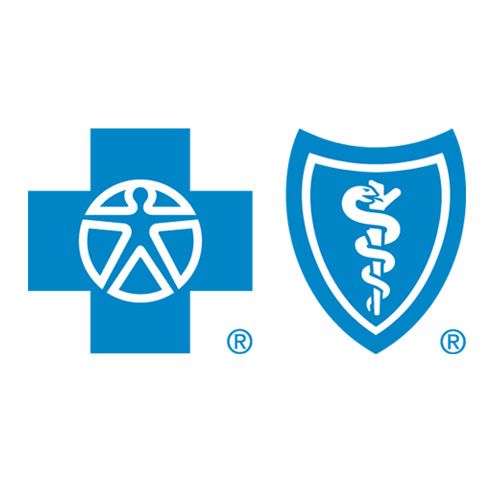Blue Cross associates share life experiences to advocate for organ donation in BIPOC communities
August 19, 2021Angel Uddin calls not donating her husband’s organs after his sudden death of the biggest regrets of her life. She is now a registered donor and advocates for organ donation in Black communities.
Mira LaNasa always knew she wanted to be an organ donor after seeing her older brother cope with a kidney disease and adapt to life with a donated kidney. This summer, she not only saw her brother go through another transplant, but she donated a kidney, herself.
Even though Angel and Mira’s stories about how they came to be organ donors are very different, they share an important thread— a call for more BIPOC (Black, Indigenous and people of color) individuals to consider becoming a donor.

August 2021 marks the 25th anniversary of National Minority and Multi-Ethnic Donor Awareness Month — a national effort to raise awareness around organ and tissue donation and transplantation in BIPOC communities. According to LifeSource, BIPOC individuals say “yes” to becoming an organ donor at rate of about 40 percent, compared to 60 percent of white individuals.
We talked with both Angel, director of diversity, equity and inclusion at Blue Cross, and Mira, public relations intern at Blue Cross, about how they hope their stories will impact others to consider becoming a donor.
Angel Uddin: Talk about it and make the decision
 On a June evening in 2004, Angel Uddin’s husband, Stewart, had just returned home from a karate class when he suffered a major heart attack in his driveway. Angel and her neighbors raced to give him CPR. By the time paramedics arrived and took over, Angel knew it was too late.
On a June evening in 2004, Angel Uddin’s husband, Stewart, had just returned home from a karate class when he suffered a major heart attack in his driveway. Angel and her neighbors raced to give him CPR. By the time paramedics arrived and took over, Angel knew it was too late.
“We could tell something was not right by their expressions as we stood off to the side— that he was no longer with us,” she recalls.
Shortly after he was pronounced dead, a representative from LifeSource, the nonprofit that manages organ donation for Minnesota, asked Angel if she would be interested in donating Stewart’s organs. While the couple had discussed being cremated, they hadn’t discussed any plans to donate their organs. Angel says in that moment of raw emotion and shock, she said no. She quickly came to deeply regret that decision and hopes to help others choose differently.
“I think that in retrospect, had I had the wisdom and knowledge about the situation that I have now, the decision would have definitely been different,” Angel says. “I understand now that there is only a certain window of time in which you can give these gifts.”
Angel is now a registered organ donor, along with her daughter, who was 10 at the time of her father’s death. She also advocates and encourages Black and African American families and communities to have open and honest conversations about organ donation as part of a broader conversation about planning for the death of a loved one.
“Having the difficult conversations about end-of-life matters. Should you transition, it will be difficult enough amid the loss and pain,” Angel says. “Don’t leave your loved ones to make these decisions for you. After all, it’s undiscussed decisions, such as this, that can create rifts between family members.”
Angel is so passionate about the subject of organ donation that she has asked friends and family members to show her their driver’s license or ID. If the donor box is not checked, she’ll ask them why. She then takes that opportunity to share her own story and what she thinks her husband would have wanted to do in that situation.
“Let your wishes be known while you’re alive. Put it in writing. Get the designation on your license so that there are no questions of what you want,” she says. “Also, the gift of life could be one of your family members or yourself. Thankfully, others have made the choice so do the same.”
See Angel share her story in this interview with FOX 9 (KMSP-TV).
Mira LaNasa: You can save so many lives by doing this one thing
 From an early age, Mira LaNasa knew she wanted to be an organ donor. She watched her older brother, James, suffer from a kidney disease that required a transplant at six months old. Mira’s dad was the donor and the kidney lasted twice as long as his doctors expected.
From an early age, Mira LaNasa knew she wanted to be an organ donor. She watched her older brother, James, suffer from a kidney disease that required a transplant at six months old. Mira’s dad was the donor and the kidney lasted twice as long as his doctors expected.
But in recent years, Mira and her family noticed James’ condition start to deteriorate. He was put on the waiting list for a new kidney in early 2020. The family started asking other relatives if they’d be willing to get tested to see if they were a potential match. Mira also volunteered to do the same.
“Growing up, I always assumed I’d donate,” says Mira, who is an adoptee from South Korea. “When the opportunity came up, I was way more willing to get tested given I’m so young.”
Mira started getting tested in November 2020. While she wasn’t a match for her brother, doctors offered her the opportunity to take part in a “paired exchange”— if they found someone who could receive her kidney, they could then create a donor chain of up to 20 recipients that would eventually lead back to her brother, if a match was found for him.
“I was still in school when all of this was going on, so there were a lot of timing factors to work around,” she says. “My team of doctors were able to enroll us in the program and told us we could wait until the timing was right for us.”
Once Mira finished her junior year at the University of Minnesota, she and her family told their teams to start the process of putting her kidney out for a donor and to look for a donor for James. They were originally told the search could take up to a year. However, doctors found a match for Mira’s kidney within a week. It took a little bit longer to find a match for James, but eventually, two other donors were located.
Mira and James were scheduled for transplant surgeries on the same day in June. James’ kidney came from a 40-year-old San Diego woman. Mira’s kidney was donated to a 30-year-old man from the Twin Cities. Mira spent three nights in the hospital, then was allowed to recover at home. James spent a few extra days in the hospital so doctors could monitor his recovery. They both had to follow restrictions such as no heavy lifting and no driving for a few weeks after the surgeries.
“It’s hard for the first couple of weeks,” Mira says. “My nursing team was so incredible and kept pushing me to walk and get up more every day. I think that was a big part of why I was able to recovery so quickly.”
Mira says she is feeling great now a few months after her surgery. She says her brother is also doing much better. “I don’t think I realized how bad his health was getting before the transplant until now that he is getting better.”
While James will have some permanent effects from his disease, Mira says he now has more energy and a better appetite.
Mira says while conversations around organ donation were frequent growing up, she didn’t understand the full extent of what being a donor meant and how she could be impacted until she was older. She also says that growing up in a white family with a privileged background, she didn’t experience the same type of discrimination that other BIPOC individuals may have faced in the health care system. She hopes her story can serve as an example and encourage other BIPOC individuals to become a donor.
“There’s always the fear of if a surgery goes wrong or if my own kidney fails, how willing will my doctors be to keep me alive or find me a new kidney?” she says. “The staff that I worked with was so reassuring and genuinely kind and cared about the good things they were doing for these people that I don’t have any concerns about this in the future.”
Why BIPOC donors matter
According to data from LifeSource, 60 percent of the 106,000 people on the national waiting list for organ transplants are people of color. That includes 840 people of color in Minnesota.
 While organ, eye, and tissue transplants can be successful regardless of the race or ethnicity of the donor and recipient, there is a greater chance of longer-term survival when donors and recipients are closely matched genetically. That is why organizations like LifeSource encourage anyone, especially BIPOC individuals, to donate to increase the diversity of donors and help transplant recipients find organs more quickly.
While organ, eye, and tissue transplants can be successful regardless of the race or ethnicity of the donor and recipient, there is a greater chance of longer-term survival when donors and recipients are closely matched genetically. That is why organizations like LifeSource encourage anyone, especially BIPOC individuals, to donate to increase the diversity of donors and help transplant recipients find organs more quickly.
“We’ll only be successful in shrinking that waiting list if more people register as organ donors,” said Susan Mau Larson, LifeSource Chief Strategy Officer. “That little heart on your driver’s license makes a big difference.”
You can register to become an organ donor online or at your local Driver & Vehicle Services office.



